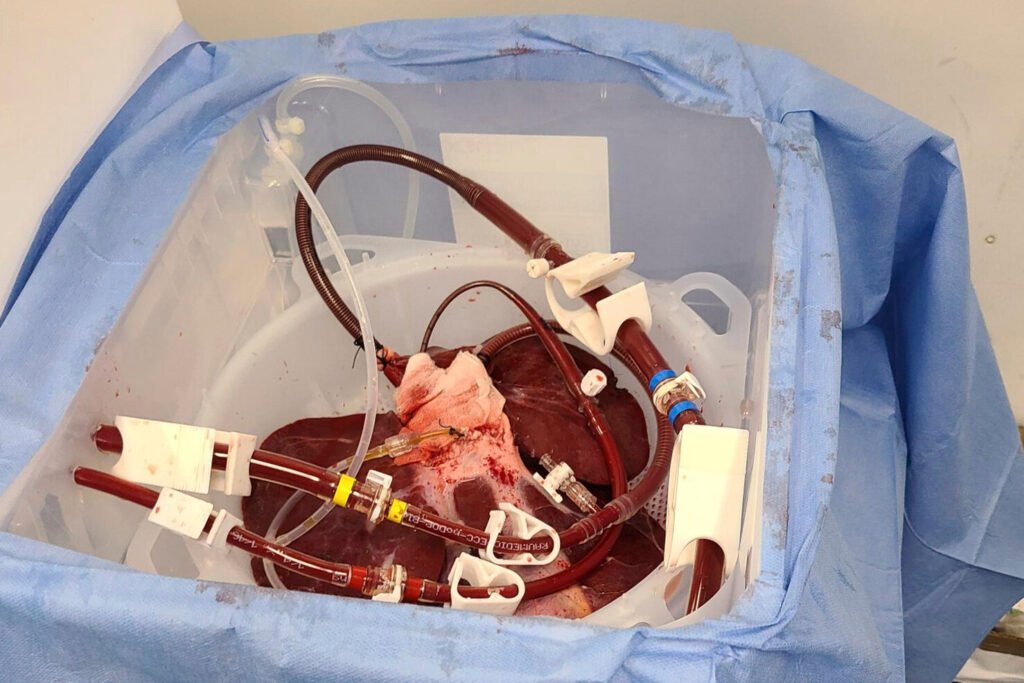A groundbreaking clinical trial approved by the Food and Drug Administration will soon test the use of gene-edited pig livers as a potential treatment for sudden liver failure in humans. The trial, conducted by pig producer eGenesis in partnership with OrganOx, aims to provide a temporary solution for patients suffering from liver failure, offering a novel approach to organ support and potential regeneration.
Sudden liver failure affects an estimated 35,000 individuals in the U.S. each year, with limited treatment options and high mortality rates. Many patients are unable to undergo a liver transplant or face challenges in finding a suitable donor in time. The innovative study will explore the use of pig livers to filter patients’ blood externally, allowing their own organs to rest and potentially heal.
Unlike traditional organ transplants, the trial will not involve the transplantation of the pig liver into the patient’s body. Instead, the organ will be connected externally to study participants, leveraging the regenerative capabilities of the human liver. Previous experiments with deceased bodies have demonstrated that the pig liver can support essential liver functions for a few days, offering hope for patients in critical care.
Up to 20 patients in intensive care units who do not qualify for a liver transplant will be enrolled in the trial. A specialized device developed by OrganOx will be used to pump the participants’ blood through the pig liver, providing vital support and potentially enhancing the liver’s regenerative capacity. This innovative approach represents a significant advancement in the field of organ transplantation and could offer new hope for patients with liver failure.
In addition to the use of pig livers, ongoing research in gene-edited pig organs is paving the way for future organ transplants and life-saving treatments. Kidneys from genetically modified pigs are already being used in experimental transplants, showcasing the potential of xenotransplantation in addressing the growing need for donor organs.
The approval of this groundbreaking clinical trial marks a significant milestone in the field of organ transplantation and medical research. As researchers continue to explore the potential of gene-edited pig organs, the future of organ transplantation holds promise for improving patient outcomes and saving lives.
Please note that the content of this article is based on information provided by The Associated Press and may not be reproduced without permission. For more information on this groundbreaking trial, please refer to the original source.


